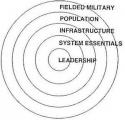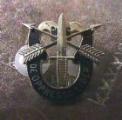TheCurmudgeon,
That is true, but the fact is that the most dynamic economic player in the poorest and most troubled regions of the World (South Asia, Middle East and Africa) is not the US, it is China.Economic stability, personal security, and a real hope (not just failed promises) of a better future may be the only way out.
In a perfect World, US and China will enter a partnership - US does what it can on security (the minor part) and China does the heavy lifting (trade & infrastructure).
Please note: Aid isn't going to drive economic stability.












Bookmarks